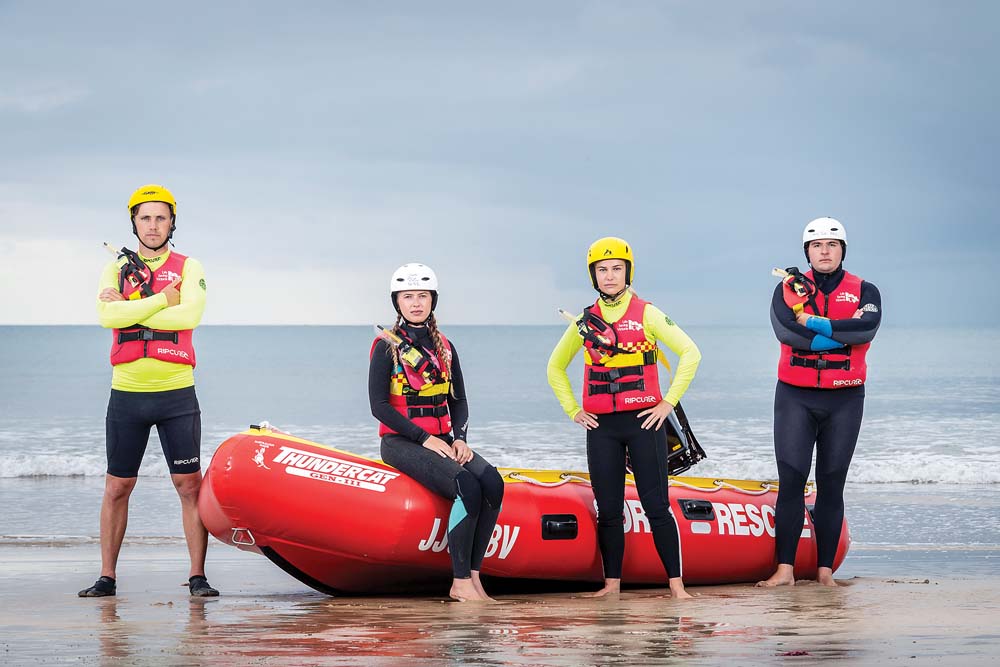LIFESAVING clubs throughout the Mornington Peninsula have taken down the red and yellow flags for the 2020/21 season.
The various clubs were involved in 63 rescues and 22,174 “preventative actions”.
The season also leaves behind one of the state’s worst drowning tolls to date, with 51 fatalities since 1 July 2020.
The extended season forVictoria’s 57 volunteer lifesaving clubs was helped with an extra $1.7 million from the state government.
Overall, lifesavers and lifeguards conducted 230,000 preventative actions, 602 rescues and 130 helicopter missions as well as 15 winch rescues across Victoria.
Their efforts were made against the backdrop of a global pandemic under which Life Saving Victoria prepared to maintain service levels, adhere to restrictions and keep volunteers, staff, and beachgoers safe.
All drownings occurred outside of patrol times and locations, with LSV’s Scout Rigoni saying this was leading to calls to extend the season permanently.
“With the need for beachgoers to heed the water safety message stronger than ever, LSV is encouraging people to consider using public pools over winter to strengthen their water safety skills before next summer,” she said.
Portsea Surf Life Saving Club’s Hamish McKendrick, who is also LSV state gear and equipment officer, said: “We were incredibly busy performing 63 rescues across the peninsula’s beaches, with around 22,000 preventative actions taken by lifesavers on the peninsula.
“That’s 22,000 people who may have had a very different outcome if we weren’t there.”
Mr McKendrick said people staying closer to home because of the pandemic and holidaying in new places meant more were unfamiliar with the beaches, getting into trouble by overestimating their ability in the water and underestimating the conditions.
“It’s so important to remember, especially while patrols have paused, that if you see someone in trouble in the water, the best way to help is to call 000 in the first instance.
“This will ensure we can coordinate the dispatch of emergency services and give the person in the water the best chance of survival.
“It also means that bystanders, while incredibly brave, don’t put themselves at risk by attempting a rescue and then finding themselves in trouble, too.
“Suddenly there are multiple rescues rather than just that first one.”
Mr McKendrick said excellent equipment at Portsea helped lifesavers keep swimmers safe. He said the inflatable rescue boats (rubber duckies) were versatile and quick to deploy in rough surf. They were safe around swimmers and rocks and could be moved from beach to beach easily and carry multiple patients.
He said jet-skis were “vital to us outside of those static patrol areas”.
“They service the whole peninsula and allow us to reach people quickly if they get into distress in more remote areas. They’re equipped for serious situations, carry a defibrillator, first-aid kits, rescue sled, and, of course, qualified lifesavers.”
Mr McKendrick said the peninsula was unique in that it had “calmer” front beaches not far away from the bigger swells on back beaches.
“People have to make the safest choice in where they want to go for a swim or a surf based on their ability and the conditions on the day,” he said. “Always check the conditions at beachsafe.org before you head out but, no matter which beach you’re at, never relax your vigilance around water.”
First published in the Southern Peninsula News – 20 April 2021




